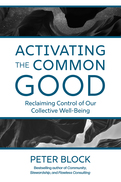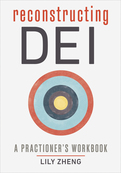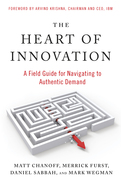7
Law One
Always Make Your Future
Bigger Than Your Past
A bigger future is essential for lifetime growth. The past is useful because it is rich with experiences that are worth thinking about in new ways—and all of these valuable experiences can become raw material for creating an even bigger future. Approach your past with this attitude, and you will have an insatiable desire for even better, more enjoyable experiences. Use your past to continually create a bigger future, and you will separate yourself from situations, relationships, and activities that can trap you there.
Your future is your property. Because, by definition, it hasn’t happened yet, it exists only in your mind. This means that you can choose to make it whatever you want. The act of making your future bigger than your past is the very act of growth itself: the bigger future is the vision, and growth is what makes it real. A bigger future includes anything you want to see that’s somehow an improvement on what’s true now: greater learning, contribution, opportunities, capabilities, understanding, confidence, quality of life, compassion, connectedness. The list goes on and on, limited only by what you can imagine. Some people’s bigger futures are mostly about themselves, and others’ encompass contributions to many other people and things.
8
Believing in a Bigger Future
In order to make your future bigger than your past, you first have to believe that it’s possible to have a bigger future, no matter what stage you’re at in life or what your circumstances are. Often, this belief alone is enough to keep you growing.
By anyone’s standards, Dan Schmidt is a very successful entrepreneur. He has grown and continues to run several successful companies. He has been very well rewarded financially, but he prefers to focus on what it has allowed him to create for others: giving young people opportunities that don’t exist elsewhere in his industry, and creating jobs and a positive working environment for his teams. Yet Dan knows that something doesn’t feel quite right anymore. For the last six months, he’s been trying to figure out what his bigger future looks like. Sure, he can wake up every day, do the same things, and get the same results, but he’s looking for the next big challenge—the next uncomfortable stretch that will allow him to apply his talents and build on what he’s already accomplished in more meaningful ways, so that he can create not just wealth and jobs and opportunities for others, but a legacy.
9
Because of this burning need to find what’s next, Dan notices things that he might not have seen before. He hears an ad on the radio about cremation versus burial and wonders who will end up with the urn, or if there’s a more significant legacy he can leave for his family. He thinks about the volunteer work he does for an environmental group and questions whether that might somehow hold the key to what’s next. He’s trying different things and opening himself to seeing in different ways. This, in itself, is growth.
As he continues to run his businesses and live his life, he’s also applying his creativity and ingenuity to trying to figure out this one big question: if everything I’ve done so far is just the beginning, what’s next? Dan’s quest for what his bigger future will look like is causing him to grow in ways that go beyond what his businesses and all his accomplishments to date have done.
Well, fine, you may say. Dan’s a successful entrepreneur and he’s used to growing. He has lots of money and resources and he’s his own boss, so of course he can think about a bigger future. What if you’re poor and no one has ever told you that you can do anything better than what you’re doing now or what your parents did? Or what if, no matter what you do, you can’t seem to get ahead? Our answer is, even in those circumstances you can still have a vision of a future that’s bigger than your past, and make it real.
10
The Courage to Think Big
Take the case of Hilda, Catherine’s mother. Hilda grew up in a very poor family, the third youngest of eight children. In fact, her family was so poor that her parents couldn’t afford to support their children while they finished school, once they reached legal working age. All of Hilda’s older brothers and sisters had quit school at 16 and taken whatever jobs they could get to help earn their keep. In the 1950s, the prospects of a decent future for a girl of 16 without a high school diploma were grim. Hilda was a good student and, fortunately, quite headstrong. She had a burning passion to become a teacher, but of course to do this she would have to complete her education. So Hilda made a brave decision: she decided to leave home and go it on her own, supported by scholarships that some encouraging teachers helped her to find. At 16, she left her family home forever and went to live at the YWCA. She finished high school and then university, became a teacher, and taught for more than 30 years.
The world is full of stories of people who, like Hilda, grew up without a lot of resources or encouragement but nonetheless believed that a bigger future was possible. Some of them are celebrities like Oprah, but many are ordinary people whose stories are less well known. What they all have in common is that they made a decision at some point to have a bigger future— in some cases a much bigger future.
11
Small Steps Keep You Growing
But what if you’re older or in poor health, and you have many great memories and experiences behind you but perhaps only a few years left? How do you make your future bigger than your past in that case? Even if you suspect that only days, weeks, or months remain after a fully lived life, you can still make your future bigger than your past. Growing can be as simple as making an effort to learn something that increases your perspective on the world, or using the time you have left to make a new kind of contribution.
Antonio Pijuan is a spry 98-year-old Spaniard, living outside Toronto, who still has strong opinions and an appreciation of pretty women. Earlier in his life he was a farmer in Catalonia, and he experienced the Spanish Civil War and two world wars firsthand. Antonio remains intensely curious about the world despite having lived through almost a century of history. Because he’s not as agile as he used to be, television has become his window on much of what’s new and interesting. After seeing a feature on the Bata Shoe Museum in Toronto, he asked his granddaughter, Lisa, to take him there. He couldn’t believe that there could be so many shoes in one building! At the end of the day, he said to her in Spanish, “Thank you. I learned so much today.”
This is an example of how a bigger future doesn’t have to be grand or flashy. It doesn’t have to involve great leaps forward. Most growth happens as a result of many small steps. The key is to keep taking them.
12
Making the Most of the Future You’ve Got
Sometimes people’s futures get cut short by events beyond their control. But a bigger future is not about how much time you have left; it’s about what you do with that time. Here’s where we pick up the story of Hilda again.
Hilda truly loved teaching and learning. Both were intrinsic to who she was. She knew she was making a contribution to her students’ lives, and their success and appreciation were her greatest rewards. It often seemed that she learned as much from them as they did from her. Once, on a trek in Thailand, after going missing in a hill tribe village, she was located sitting outside a hut surrounded by all the local children. They were teaching her words in the Lahu language, and she was teaching them words in English. Bursts of laughter had given them away.
At 59, Hilda was diagnosed with a rare, untreatable form of cancer. By the time the tumor was found, she had only a few months to live. Within moments of receiving this news, she made a decision to turn her remaining time into the most significant learning and teaching contribution of her life. She resolved to handle her situation with all the grace she could muster and to be an example to others of how to deal with dying in a dignified, conscious, and thoughtful way. Her first student was a young doctor who had jumped the gun and told her the night before her official diagnosis that she didn’t have cancer. Gently but clearly, she explained to him how his misinformation had affected her, and her family and friends. It was a lesson he would surely not forget.
She went on to inspire many people over the following months with her attitude and courage. Dying is a difficult subject to educate people about because most of us don’t want to face it. Somehow, she managed to balance hope with pragmatism—not giving up, not being in denial, but realistically and calmly talking about the future and what might happen.
When Hilda died, five months later, the funeral home had to open an additional wing to accommodate all the unexpected visitors. More than 300 people went to pay their respects and celebrate what her life had meant to them. As bravely as Hilda had lived, starting with her big decision to leave home at 16, she died even more courageously. She had been determined to squeeze every growth opportunity out of her last few months, even though in many ways her physical quality of life had been severely diminished by the disease. No matter what your circumstances, you can always make your future bigger than your past. Use what you’ve learned and done as a foundation for something bigger—bigger questions, bigger contributions, bigger achievements, bigger learning. Allow what you know to point you toward the vastness of what you have yet to discover. All of these things will keep you growing to the very last days of your life.














